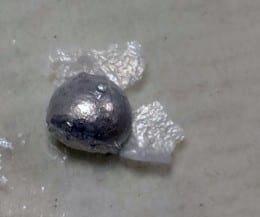Researchers at KTH Royal Institute of Technology in Stockholm have developed a new technique to prevent pharmaceutical residues from entering waterways and harming wildlife.
The new water treatment technology – called membrane distillation – separates drug residues from sewage with the help of district heating, says who worked on the development project with IVL and Scarab Development AB.
Martin says that water vapor passes through a thin, hydrophobic membrane of material similar to Goretex, and through an air gap, where it condensed onto a cold surface. Drug residues collect on one side of the membrane and pure water on the other.
“There is currently no technology capable of doing this cleaning process on a large scale,” Martin says. “And for the membrane distillation process to work, the water temperature does not need to be very high, which is good.”
Pharmaceutical residues in wastewater have been found to alter fish behavior and could even affect the growth of algae. A recent study at Sweden’s Umeå University shows even low levels of Oxazepam detected in the Fyris River, in central Sweden, caused perch to become more antisocial, risk prone and active, making them an easier target for predators such as pike. The study measured levels of Oxazepam found in the perch, which were six times higher than in the water itself.
The study also indicated that the release of anti-anxiety drugs can affect entire ecosystems in a waterway, possibly contributing to an increases or decreases in the incidence of algae.
The Latest on: Wastewater treatment
[google_news title=”” keyword=”wastewater treatment” num_posts=”10″ blurb_length=”0″ show_thumb=”left”]
via Google News
The Latest on: Wastewater treatment
- Union Says Big Island Wastewater Plants Are Dangerously Understaffedon April 29, 2024 at 8:37 pm
It's not uncommon for a lone worker to be responsible for operating sewage treatment facilities that have been plagued with problems.
- West Point Treatment Plant water quality permit now issuedon April 29, 2024 at 3:46 pm
We've now issued the final permit for the West Point wastewater treatment plant in Seattle. It strengthens protective measures for Puget Sound with updates that match current water quality rules.
- Man who died after incident at wastewater plant in Socorro identifiedon April 29, 2024 at 3:30 pm
El Paso Water officials identified the man who died after being "trapped in a confined space" at Bustamante Wastewater Treatment Plant in Socorro Friday afterno ...
- Wildwood’s expanding wastewater system has stinking problemon April 29, 2024 at 3:00 pm
Wildwood’s expanding wastewater system has a stinking problem. Utilities Superintendent Jason Martin told commissioners at a special meeting Monday that wastewater takes so long to get to the ...
- Companies aim to release more treated oilfield wastewater into rivers and streamson April 29, 2024 at 3:00 pm
The Odessa American is the leading source of local news, information, entertainment and sports for the Permian Basin.
- Hydrite acquires two water treatment product manufacturers in Missouri, Coloradoon April 29, 2024 at 2:23 pm
Hydrite Chemical Co. has acquired O’Fallon, Missouri-based Fife Water Services Inc. and Greeley, Colorado-based Precision Polymer Corp.
- Shimmick Deploys Planera for $100 Million Wastewater Projecton April 29, 2024 at 5:46 am
Faced with collaboration bottlenecks, limited flexibility and inefficient input provided by legacy scheduling systems, Shimmick looked to Planera to add efficiency to its project scheduling process.
- Water and Wastewater Treatment Chemical Market to Reach US$ 60,541.2 Million by 2034 Amid Evolving Environmental Regulationson April 29, 2024 at 3:15 am
According to Future Market Insights (FMI), the global water and wastewater treatment chemical market is expected to increase from US$ ...
- Magazine features Albert Lea wastewater treatment planton April 26, 2024 at 8:49 am
ALBERT LEA, Minn. - The Albert Lea wastewater treatment plant was recently featured in a national magazine for its work to protect the environment. The magazine, called Treatment Plant Operator, ...
- Provo aiming to clean up Utah Lake with state-of-the-art wastewater treatment facilityon April 23, 2024 at 11:25 am
Water will start being put through the plant in early fall so the facility can be tested before it starts processing sewage at the end of March 2025.
via Bing News











